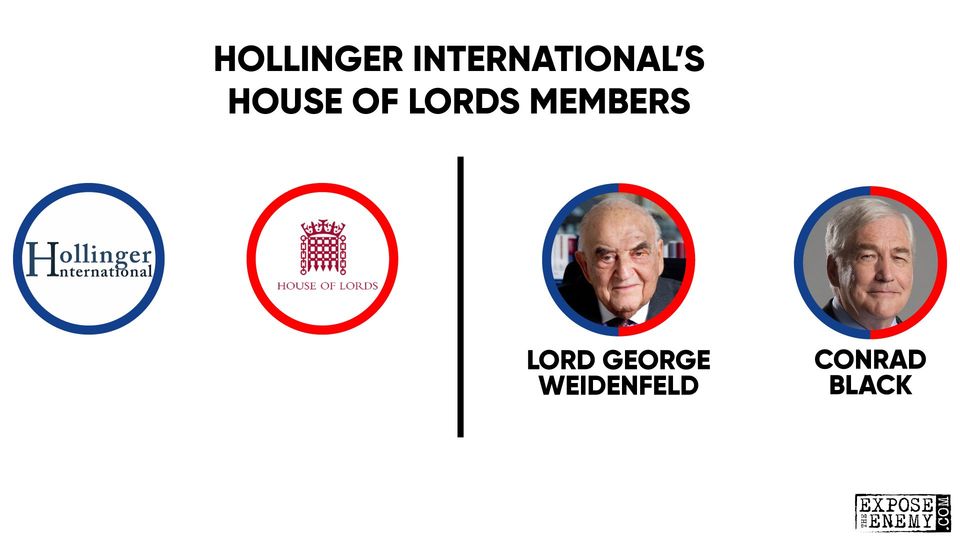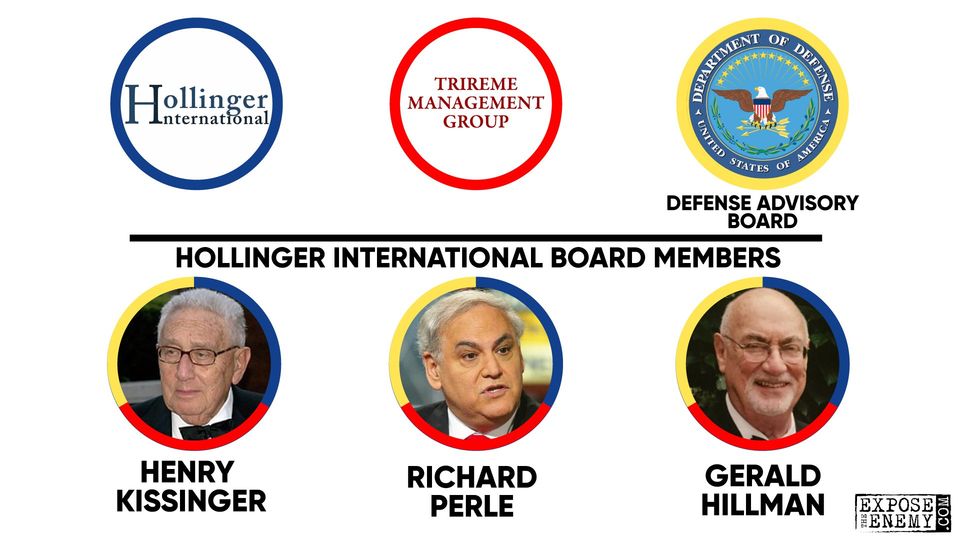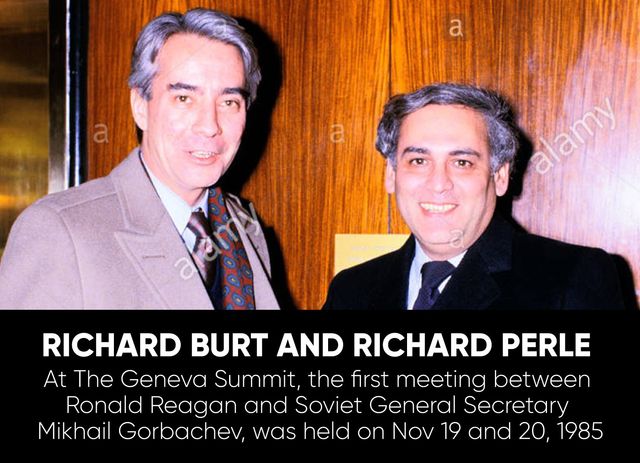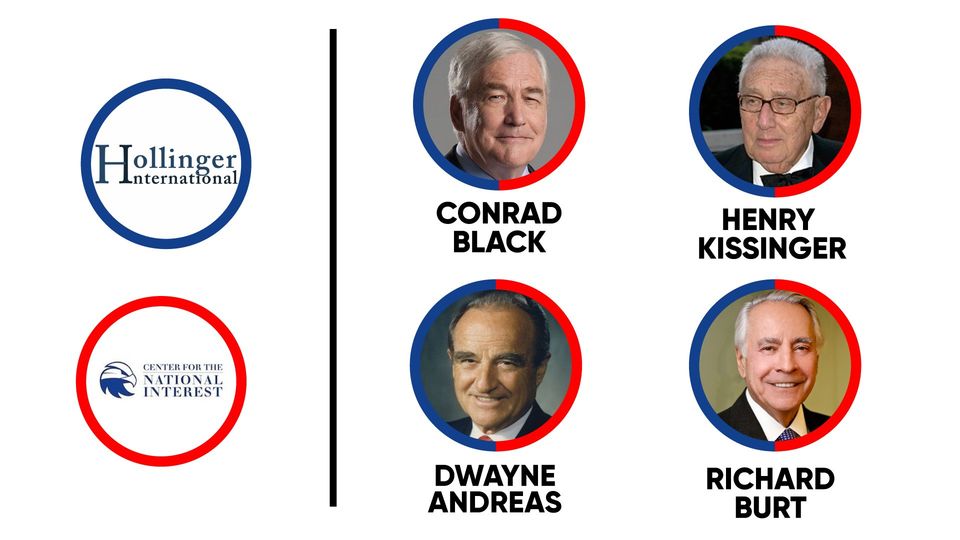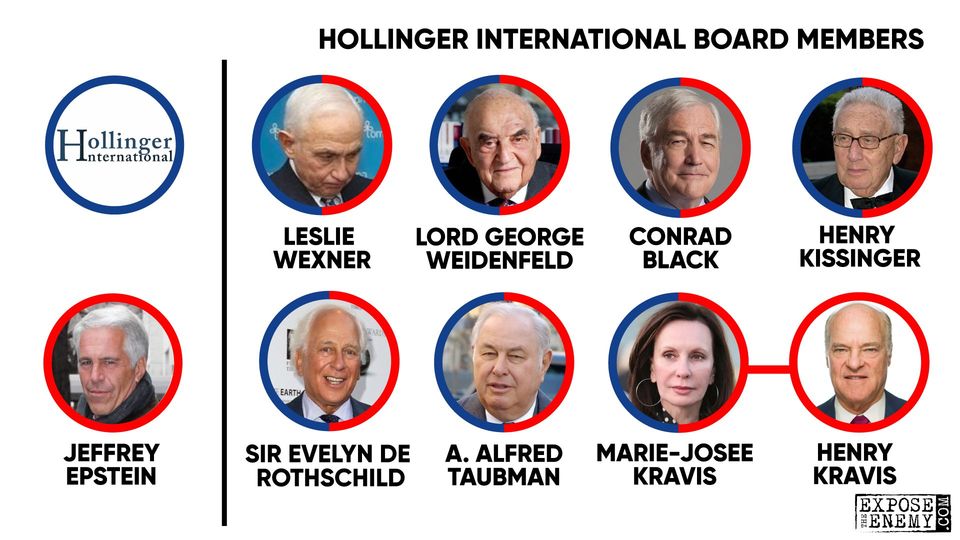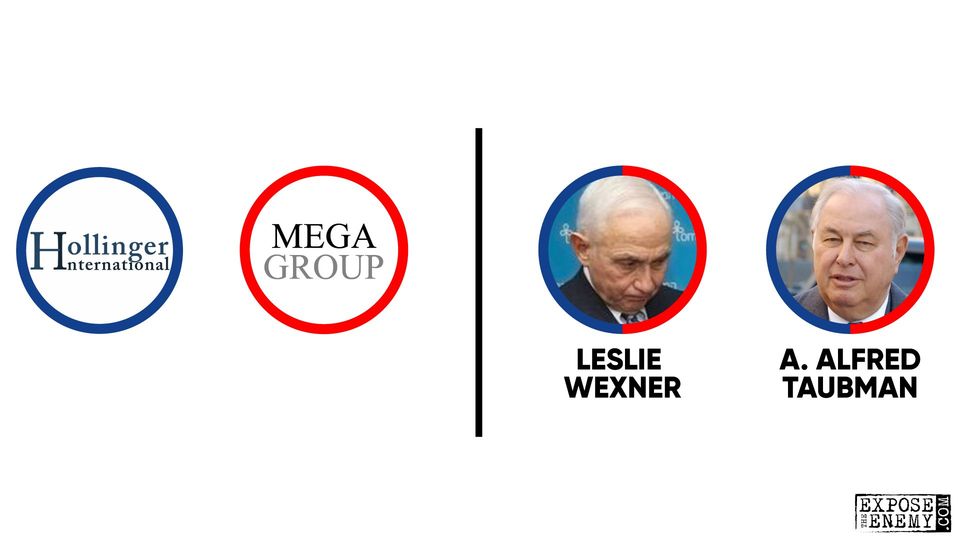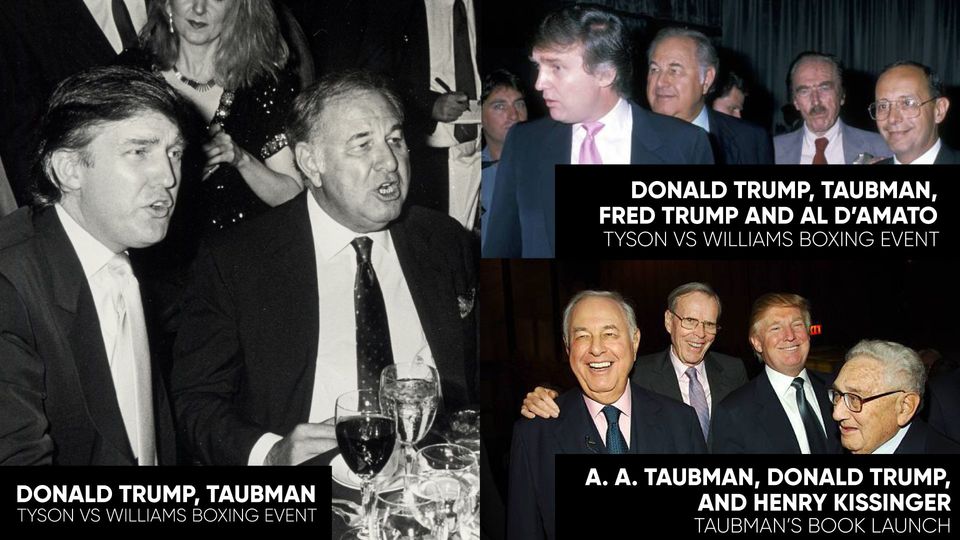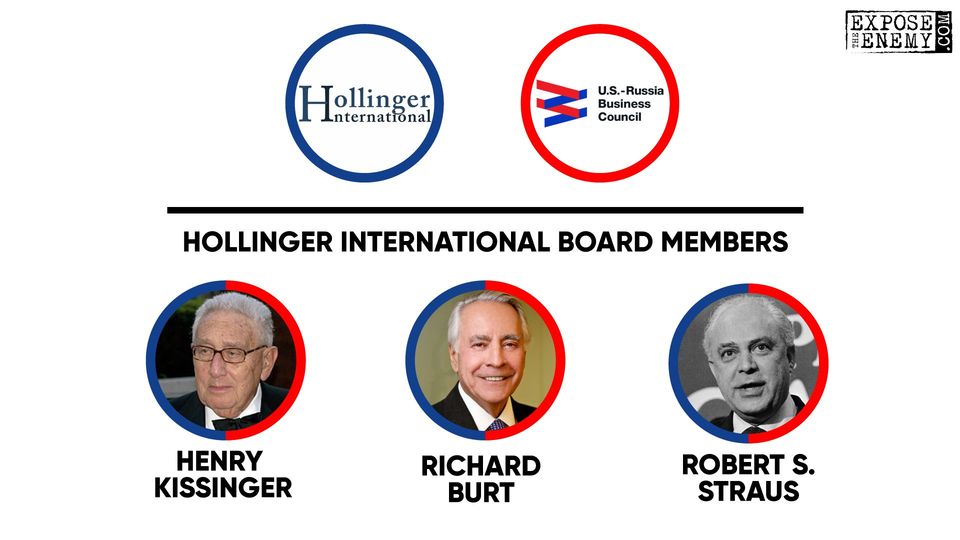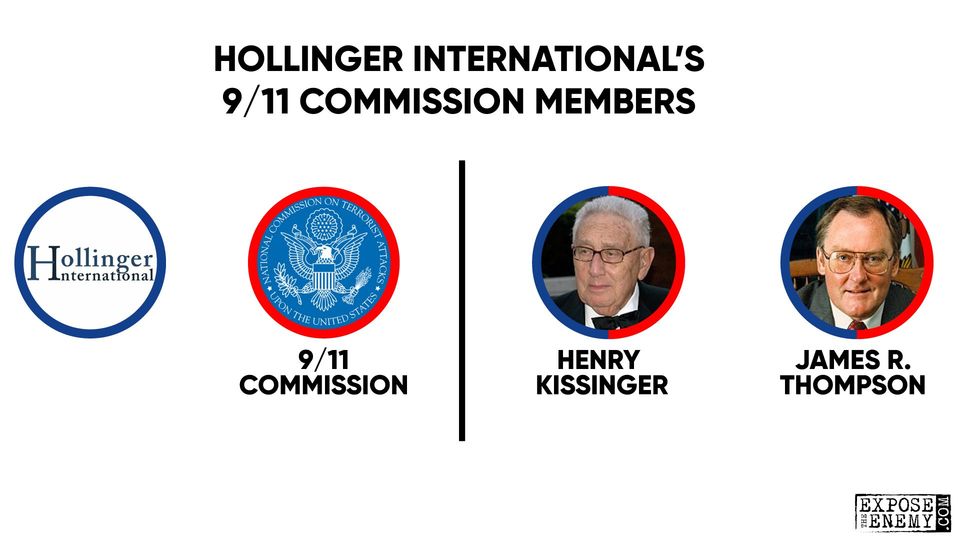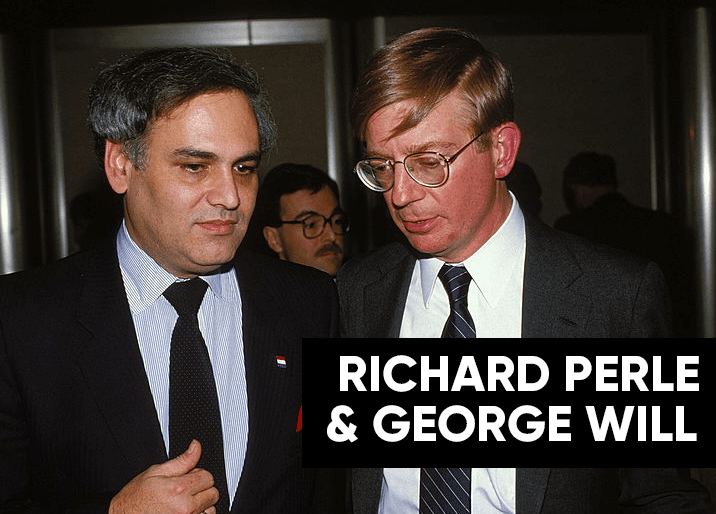
Hollinger International
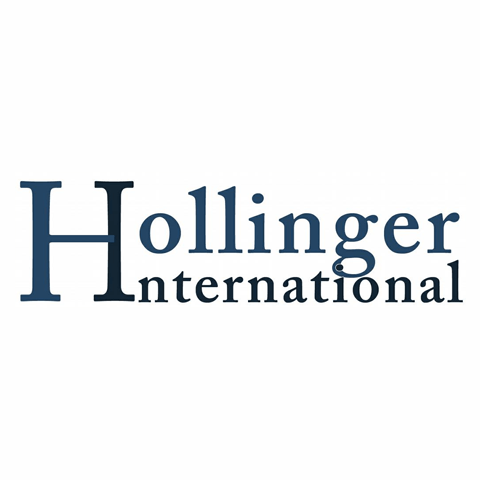
HOLLINGER INTERNATIONAL
Hollinger Inc. was the parent company of Chicago-based Hollinger International, whose primary holdings included a group of Chicago newspapers. Its flagship paper was the Chicago Sun-Times. Hollinger also owned The Jerusalem Post and interests in Australian and Canadian newspaper chains. Hollinger's non-Canadian papers were sold to Hollinger International in 1996. Hollinger became a holding company for stakes in various companies, including its controlling stake in Hollinger International.
Ravelston Corporation, a private corporation owned by Thatcherite Conrad Black and Neo-conservative David Radler controlled their former newspaper empire. Ravelston owned Argus Corporation which in turn controlled Chicago-based Hollinger International via Hollinger Inc.
The ownership structure of Hollinger and other related companies was described as "complex" and "convoluted."
Hollinger International Inc—and its shareholders—lent money to an entity controlled by Conrad Black, paid massive management fees to entities controlled by Black, sold assets to companies controlled by Black, and maintained a condominium for Black in New York. The board of directors approved every step of the way. It wasn’t until this Monday—when a special committee of outsiders, formed at the urging of shareholder activist Tweedy Browne, disclosed $32 million in unreported or improperly reported compensation to Black and other executives—that he was forced to step down.
Reason for Black's Empire
Hollinger didn't only exist as an operation to steal for investors. It existed to serve the interests of Conrad Black and David Radler which they shared with the networks operated by the oligarchy, corporations and military industrial complex establishment. The goal was to shape public thought into supporting their agendas.
Zionism
Black's notably rightwing brand of Zionism which tends to regard the Palestinians, like their leader Yasser Arafat (to quote from an article he wrote in the Post in 1993,) as "vile and primitive".
As a result, uniquely among British papers, the foreign pages of the Daily and Sunday Telegraphs have contained a notable absence of clear, critical reporting of Israel's deadly methods of suppressing Palestinian dissent. Their comment pages have been even more extreme.
Edward Luttwack, a former Israeli tank commander and friend of Black, writing to celebrate the election of Sharon whom he praised as "a master of outwitting his opponents", and a "raging bull who is really a matador" - as if he were some sort of jolly sporting hero rather than the man who failed to stop the single most gruesome massacre in the entire Arab-Israeli conflict. Then there are the regular appearances of Black's wife, Barbara Amiel, who recently concluded a two-page spread in the Telegraph by comparing the Palestinians to "animals".
It was against this background that a major row erupted three weeks ago when the Spectator columnist Taki (familiar to Guardian readers from his frequent appearances as a runaway waiter in Matthew Norman's diary) broke the unspoken ban on criticising Israel in a Black paper by writing a piece which Black described, in an emotional 3,000-word retort, as "almost worthy of Goebbels".
Since then the Spectator letters page has been like a war zone, with Black flinging increasingly hysterical accusations at anyone who dissents from his views. Lord Gilmour, who had written to defend Taki, was accused of "seeming like a common or garden Jew baiter". In a second letter in the same letters page, more than half of which was filled by Black himself, Piers Paul Read, AN Wilson, Charles Glass and I - all Spectator writers who had written to protest at the skewed coverage of Israel-Palestine in Black's papers - were denounced by Black as representative of "the depths of the problem of anti-semitism in the British media".
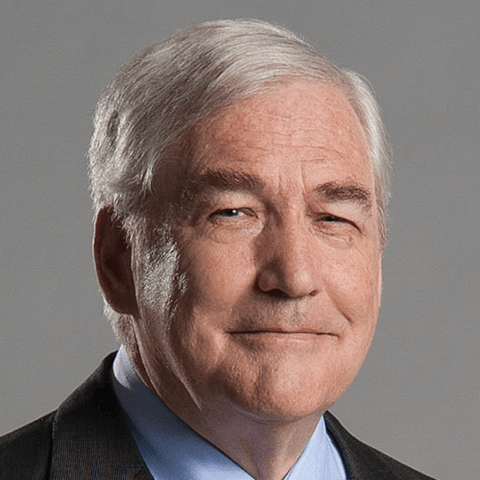
CONRAD BLACK
CHAIRMAN, COO
Conrad M. Black was Chairman of the Board of Directors and Chief Operating Officer of Hollinger International Inc..
In July 2007 Black was convicted by a Chicago jury of three counts of mail fraud and one count of obstruction of justice. In December 2007, Black was sentenced to 6 1/2 years in prison.
Following his fall from grace with Hollinger in late 2003, Christopher Grimes and John Lloyd wrote in the London Financial Times that Black was more effective as a conservative political advocate than a businessman. "Yet Conrad Black's business ambitions probably always ran second to his urge to be an intellectual force of conservatism. He did not want to simply own newspapers. He wanted to use them to help to reshape the political culture of his native Canada, and to influence that of the United States, Britain and Israel", they wrote.
Matthew Fraser, the current editor-in-chief of Canada's National Post - a Hollinger publication - defends Black as having made a significant impact on Canadian policies. "He (Fraser) says its push for lower corporate taxes has made the issue 'legitimate'. Its criticism of the Canadian Broadcasting Corporation forced the public broadcaster to be less "biased and left-wing". And its support for the invasion of Iraq, free trade and general pro-Americanism have added much-needed debate," Grimes and Lloyd wrote. However, Black became known for taking over newspapers and restructuring the different departments, resulting in job losses.
He is known politically for his staunch criticism of the Liberal Party of Canada.
In 1999, the British Labour government decided to give Black a peerage. This resulted in strong opposition in Canada and particularly from Prime Minister Jean Chretien. The Nickle Resolution of 1919, ruled that foreign governments could not grant honours to Canadians that carry a title or privilege. Black challenged the ruling unsuccessfully in court. However Black gave up his Canadian citizenship and was subsequently inducted into the British House of Lords as Lord Black of Crossharbour on October 31, 2001.
Black as a Media Mogul
The National Post, was first published in late October 1998 to compete with The Globe and Mail, the Toronto Star and the Toronto Sun. On July 31, 2000 Hollinger sold half of the National Post, 13 major Canadian newspapers, 126 community newspapers and internet sites to CanWest for $3.2 billion. Hollinger's remaining share was sold in the latter half of 2001.
Maude Barlow, the chair of the Council of Canadians, is cited by Leiterman stating Black is known to "routinely intervene in editorial policy-making".
Leiterman also cites Radler, Hollinger's president, as telling Maclean's (2/3/92): "If editors disagree with us they should disagree with us when they're no longer in our employ. The buck stops with ownership. I am responsible for meeting the payroll; therefore I will ultimately determine what the papers say and how they're going to be run."
Hollinger also owned the Jerusalem Post. John O'Sullivan, a friend of Black and the editor of the US journal, the National Interest, told the Financial Times in early 2004 that the Jerusalem Post "supports the policies of the right and broadcasts them to the world - something which people weren't used to, because it had always been the Israeli left which commanded the stage". (Later that year Hollinger sold the Jerusalem Post to the Israeli publisher Mirkaei Tikshore.
In September 2003 that newspaper advocated killing Yasser Arafat. This was quickly raised by the Israeli Cabinet, but described by Colin L. Powell, Condoleeza Rice as "unhelpful" and by The Economist as "wrong".
In 2002, Black was among the investors who contributed $20 million to start up The New York Sun.
In May 2004, Hollinger International, now free of Black's control, filed a $1.25 billion racketeering lawsuit against Black and other former corporate insiders, accusing them of pillaging the company of more than $400 million. In October, a judge dismissed the racketeering claims, and Hollinger refiled without them, adding Richard N. Perle as a defendant.
On November 15, 2004, the US Securities and Exchange Commission filed a civil fraud lawsuit against Black and Radler, alleging that they improperly diverted $85 million to their own use. In March 2005, the US revealed that it was also conducting a criminal investigation of Black and Radler.
In November 2005 federal prosecutors charged Black with eight counts of mail and wire fraud and accused of diverting $51.8 million of Hollinger shareholders money to himself and associates. Black rejects the charges.
On March 30, 2006, Black lost his battle to keep important documents away from US prosecutors in his fraud trial. U.S. District Judge Amy St. Eve, denied Black's motion to quash a subpoena to access 13 boxes of documents that Black removed from his Toronto office after he was notified that he was being investigated by the US Securities and Exchange Commission (SEC). Incriminating evidence showed a security video tape showing Black loading the boxes into his limousine on May 20, 2005, which was only hours after he was served a request for documents by the SEC which was investigating allegation that Black and other executives looted Hollinger International Inc. of more than $80 million dollars.
Also on March 30, 2006, a report in the Globe and Mail claimed that the Internal Revenue Service wants banking records for a Barbados company that Black allegedly used to stash cash offshore. In 2004, a report from a special directors committee of Hollinger International alleged that Black used the Barbados company, Argent News Inc., "to avoid taxes on some of the millions he is accused of skimming when he was the company's chairman".
On April 13, 2006, The Guardian published a story in which it claims that Hollinger International Inc. has agreed to pay the majority of Black's legal bills. Black had argued that the company should provide 100% of his legal fees and filed a law suit demanding advances to cover his costs in March 2004. Interestingly under the settlement, Black would be forced to repay the money if it is determined that he is not indemnified by the company's insurance policy.
Black's father, George Montegu Black, Jr., a chartered accountant, became the president of Canadian Breweries Limited, an international brewing conglomerate that had earlier absorbed Winnipeg Breweries. Conrad Black's mother was the former Jean Elizabeth Riley, a daughter of Conrad Stephenson Riley, whose father founded The Great-West Life Assurance Company, and a great-granddaughter of an early co-owner of The Daily Telegraph. His father was a shareholder in The Daily Telegraph.
On 15 May 2019, U.S. President Donald Trump granted Black a full pardon. Trump noted "broad support from many high-profile individuals who have vigorously vouched for his exceptional character". Black is a friend of Trump and has written flatteringly about him in opinion articles and in the 2018 book Donald J. Trump: A President Like No Other. Many news sources linked Black's recent book and his long friendship with Trump to the pardon. The Washington Post noted, "In addition to his book, Black frequently writes columns praising Trump and considers the president a friend". Black had been deported to Canada and barred from entering the U.S. for 30 years; the pardon allows him to travel in the U.S.
In 2001, British Prime Minister Tony Blair advised Queen Elizabeth II to confer on Black a life peerage in the Peerage of the United Kingdom with the title of The Baron Black of Crossharbour. He would sit as a Conservative peer, and his name had been put forward by the then-Conservative leader William Hague.
Black is listed in Jeffrey Epstein's black book of contacts.
Black is a former Steering Committee member of the Bilderberg Group.
Black is a board member of the Center for the National Interest (CNI)
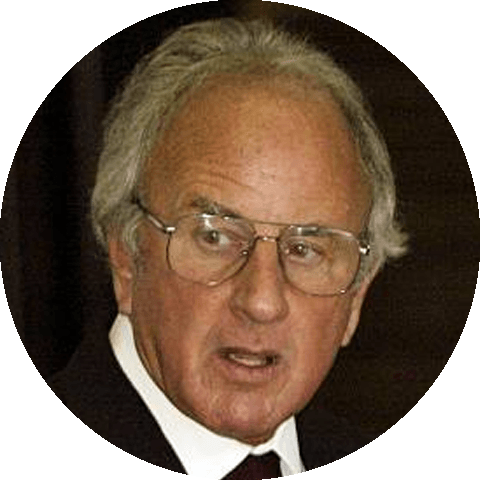
DAVID RADLER
BLACK'S BUSINESS PARTNER
F. David Radler (born 1944 in Montreal, Quebec) is a Canadian executive and close associate of Conrad Black for 36 years. Radler was once president of Ravelston Corporation, a privately owned corporation owned by Black and Radler to control their former newspaper empire. Ravelston owned Argus Corporation which in turn controlled Chicago-based Hollinger International. In 2005, 14.1% of Ravelston was owned by Radler.
After controversy developed in 2003–2004 concerning $32,000,000 of 'non-compete' payments made to Black and Radler in the sale of Hollinger newspapers, the US Securities and Exchange Commission (and Canadian authorities as well) announced that Black and Radler were under investigation for their involvement.
Radler was eventually charged with five counts of mail fraud and two counts of wire fraud. On 20 September 2005, Radler pleaded guilty in a Chicago court to one count of mail fraud in relation to the 'non-compete' payments.
These payments had been diverted by Radler to a company controlled by himself and Black, Horizon Publications Inc. By disguising the payments as 'non-compete' payments, non-sales proceeds, Radler took advantage of a Canadian tax ruling that made them tax-exempt. The prosecution argued that these moneys belonged to Hollinger International, and had been improperly and secretly diverted to Black and Radler. Radler was sentenced to a fine of $250,000 and a term of 29 months in prison. He assisted authorities in the prosecution in the investigation of Black. This episode brought an end to their friendship.
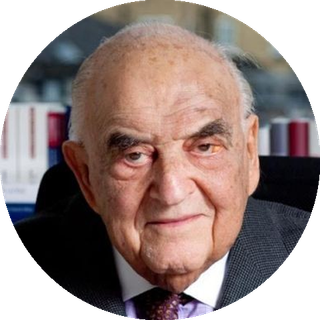
LORD GEORGE WEIDENFELD
INTERNATIONAL DIRECTOR
Lord Weidenfeld served as a Hollinger International director from 1996 to 2002. Upon being question about his role at Hollinger and how the board operated in regards to their behavior enabling stockholders money to be siphoned out of the company and withheld documents from investigators, Weidenfeld believes the board was merely behaving like any other.
Weidenfeld saw his role on the board of Lord Black's company mainly to advise on Hollinger's Israeli investment, The Jerusalem Post, and possible acquisitions in Europe. He added that he did not think he was expected to have a detailed understanding of the company's finances.
Veteran Zionist master networker
Honorary member of the Club of Rome .
He was part of the Outhwaite syndicate with Robert Maxwell and Adnan Khashioggi.
President of Institute for Strategic Dialogue International Advisory Board New Atlantic Initiative
President of Israel APPG
Director of East-West Institute..
Honorary Chair Board of Government Ben Gurion University
Austrian Jew that fled to the UK in 1938 and immediately began work as a anti-German pro war propagandist.
Became Political Advisor Chef de Cabinet in Israel to the first ever President Chaim Weizmann in 1949.
Was on the International Board of Weizmann Institute Science..
Founder of the Weidenfeld & Nicholson published Benjamin Netanyahu’s book Terrorism: How the West Can Win,. Micheal Gove’s Celsius 7/7. Both ‘War on Terror’ propaganda books.
Listed in Jeffrey Epstein's black book.
Also featured on the site as part of the 'Tommy' & The Counter-terrorism Industry network
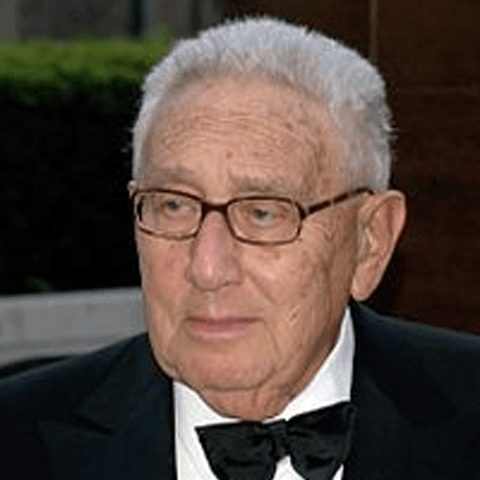
HENRY KISSINGER
DIRECTOR
Political scientist, diplomat, and geopolitical consultant who served as United States Secretary of State and National Security Advisor under the presidential administrations of Richard Nixon and Gerald Ford.
Kissinger has been labeled a conservative "realist" but can be considered a "neo-con" (neo-conservative).
The real question is who does Kissinger represent?
Kissinger's privately held and secretive company Kissinger Associates. Over the decades it has been Kissinger's job to represent an array of clients that includes everyone from Coca Cola to Union Carbide to Hunt Oil to Gazprom.
You can see how conflicts of interest come into the equations when a major politically connected former Secretary of State is representing a giant foreign state owned gas company and is advising Donald Trump on foreign policy.
Other issues of conflicts of interests were raised when in November 2002 then President George W Bush named Kissinger as the head of the 9/11 Commission. Upon the announcement the families of the victims requested for Kissinger to produce a list of his corporate clients. In this episode a strong indication of where Kissinger's loyalties were revealed when he refused to comply with the simple request and stepped down from the position.
Some other controversial clients include the engineering giant Fluor who were major benefactors of government contracts for reconstruction projects in Iraq.
Another is ITT who were used by the CIA as a front during their covert activities in Chile. Kissinger has long been associated with policies involving the 1973 Chilean military coup.
Kissinger remains widely regarded as a controversial figure in American politics, and has been condemned as a war criminal by journalists, political activists, and human rights lawyers. According to a 2014 survey by Foreign Policy magazine 32.21% of "America's top International Relations scholars" considered Henry Kissinger the most effective U.S. Secretary of State since 1965.
Kissinger remained at Harvard as a member of the faculty in the Department of Government and, with Robert R. Bowie, co-founded the Center for International Affairs in 1958 where he served as associate director. In 1955, he was a consultant to the National Security Council's Operations Coordinating Board. During 1955 and 1956, he was also study director in nuclear weapons and foreign policy at the Council on Foreign Relations. He released his book Nuclear Weapons and Foreign Policy the following year. From 1956 to 1958 he worked for the Rockefeller Brothers Fund as director of its Special Studies Project. He was director of the Harvard Defense Studies Program between 1958 and 1971. He was also director of the Harvard International Seminar between 1951 and 1971. Outside of academia, he served as a consultant to several government agencies and think tanks, including the Operations Research Office, the Arms Control and Disarmament Agency, Department of State, and the RAND Corporation.
Keen to have a greater influence on U.S. foreign policy, Kissinger became foreign policy advisor to the presidential campaigns of Nelson Rockefeller, supporting his bids for the Republican nomination in 1960, 1964, and 1968. After Richard Nixon became president in 1968, Kissinger was appointed as National Security Advisor.
Advised Trump
In December 2016, Kissinger advised then President-elect Donald Trump to accept "Crimea as a part of Russia" in an attempt to secure a rapprochement between the United States and Russia, whose relations soured as a result of the Crimean crisis.
When asked if he explicitly considered Russia's sovereignty over Crimea legitimate, Kissinger answered in the affirmative, reversing the position he took in his Washington Post op-ed.
Business Affiliations
Principal, Trireme Partners LP
Chairman, Kissinger Associates, Inc., international consulting firm
Chairman, International Advisory Board, American International Group, Inc.
Director Emeritus, Freeport-McMoRan Copper and Gold Inc. (since 1995)
Director, ContiGroup Companies, Inc.
Director, Continental Grain Company
Director, FirstMark Communications International LLC
Director, Hollinger International Inc.
Director, The Revlon Group
Advisory Board, JP Morgan Chase & Co. International Council
Advisor to Board of Directors, American Express Company
Advisor to Board of Directors, Forstmann Little and Co.
Ties to the Carlyle Group through Lobbyist David M. Marchick, senior adviser to Kissinger McLarty Associates
In May 2002, Kissinger joined the private investment firm Hicks, Muse, Tate & Furst's Europe Strategy Board.
Non-Commercial Affiliations / Organizations
Honorary Governor, Foreign Policy Association
Honorary Chairman, American Academy in Berlin
Honorary Director, Friends of Dresden
Honorary Member, International Olympic Committee and Public Sector Member, United States Olympic Committee
Patron and Chairman of the Advisory Board, The New Atlantic Initiative
Patron, Atlantic Partnership
Chancellor, The College of William and Mary
Chairman, Eisenhower Exchange Fellowships
Director, Center for Democracy/Center for Democracy
Director, Dan David Prize
Director, International Rescue Committee
Advisory Board, Children's Scholarship Fund
Advisory Board, Puppies Behind Bars (with wife, Nancy Kissinger)
Counselor/Trustee, Center for Strategic and International Studies
Trustee, Institute of International Education
Honorary Trustee, Aspen Institute
Trustee, Open Russia Foundation
Trustee, Institute of International Education (IIE)
Trustee and Counselor, Center for Strategic and International Studies
Member, Honorary Council of Advisors at the US-Azerbaijan Chamber of Commerce
Member and Trustee Emeritus, Metropolitan Museum of Art
Reputed Member, Committee of 300
Reputed Member, Trilateral Commission
Reputed Member, Bilderberg Group
Board of Overseers, International Rescue Committee
International Board of Governors, Peres Center for Peace
Listed in Jeffrey Epstein's black book.
You can find out more about CNI of which Kissinger is a honorary chair here
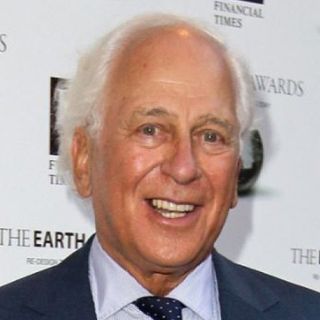
EVELYN DE ROTHSCHILD
DIRECTOR
Sir Evelyn de Rothschild failed his economics degree at Cambridge, but made up for it 40 years later when he took an honorary one from Hull. Evelyn was a polo player in his youth and played often against Prince Philip.
He became a partner of the French Rothschilds in 1969, who were headed by Guy de Rothschild. He was deputy chairman of Milton Keynes Development Corporation 1971-1984.
Chairman of The Economist from 1972-1989
Director of IBM UK Holdings Plc from 1972-1995
Executive chairman NM Rothschild & Sons, London 1976-2003. In 1976 he followed up Edmund de Rothschild.
In 2003 the French David de Rothschild took over as executive chairman of Rothschild International (the different branches had been merged), while Evelyn de Rothschild continued to be non-executive chairman of NM Rothschild & Sons.
Chairman of the Delegacy of St Mary's Hospital Medical School from 1977 to 1988.
Chairman United Racecourses from 1977 to 1994.
Director De Beers Consolidated Mines from 1977 to 1994, a firm once founded by the Rothschilds and headed by Cecil Rhodes.
Chairman of Swiss-registered Rothschild Continuation Holdings from 1982 to 2003, in which Jardine Matheson (Keswick family of the 1001 Club and Pilgrims Society) bought a 20% stake in 2005 as only allowed outside shareholder.
Israel
The name of Rothschild has been associated with the region for more than a century. The family helped to finance early Jewish settlements and its huge charitable trust still funds philanthropic projects in Israel. Now Sir Evelyn de Rothschild, who is known to have little time for the policies of the current right-wing Israeli government, hopes to help establish the firm foundations of the fledgling Palestinian economy. He said: "I feel very strongly that if one has a multi-ethnic community you must try to help all sides of the community to try to better themselves. "A good economic base for Palestine must be beneficial for security and peace in the area."
Evelyn's name appears in Jeffrey Epstein's black book.
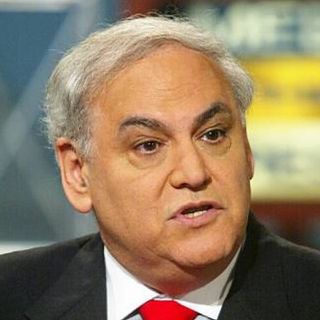
RICHARD PERLE
DIRECTOR
Served as a director for Hollinger International Inc.
On August 31, 2004, a special committee of new Board of Directors investigating the alleged misconduct of the controlling shareholders of Hollinger International submitted the 512-page Breeden Report to the U.S. Securities and Exchange Commission (SEC). In the report, Perle is singled out as having breached his fiduciary responsibilities as a company director by authorizing several controversial transactions which diverted the company's net profit from the shareholders to the accounts of various executives.
Perle siphoned $2.5 million out of Hollinger International Inc disguised as an investment to a company Perle co-founded with Gerald Hillman called Trireme Management Group. The transaction wasn't reported to the audit committee.
The Breeden report said Perle "breached his fiduciary duties" as a member of the board's executive committee, signing documents without evaluating or, sometimes, reading them, including those that allowed Black and Radler to evade audit committee scrutiny. Perle received more than $3 million in bonuses and hundreds of thousands of dollars more in compensation from a Hollinger subsidiary that invested in new media companies during the dot-com boom. The report said Hollinger International put $63.6 million into 11 companies Perle recommended and lost nearly $50 million. "Perle was a faithless fiduciary . . . and . . . should not be allowed to retain any of his Hollinger compensation," the report said. The investigating committee called for him to return the $5.4 million.
Top Hollinger executives dismissed the Breeden Report and filed a defamation lawsuit against the head of the investigating committee, former SEC chairman Richard C. Breeden. However, in 2005, Perle publicly acknowledged he had been served a 'Wells notice', a formal warning that the S.E.C.'s enforcement staff had found sufficient evidence of wrongdoing to bring a civil lawsuit.
Kissinger
Not only was Perle a friend of Kissinger, he was also a business associate as Kissinger was also a member of Trireme Management Group. At the same time Perle, Hillman and Kissinger were advisers of the US Secretary of Defense by being members of the Defense Advisory Board chaired by Perle. All three men also served as advisors or directors at Hollinger International Inc.
Boeing
Boeing kick-started Trireme Management Group with a $20 million investment. Interestingly, Boeing are the second biggest defense contractor and following their investment, Perle wrote op-eds supporting Boeing's controversial $17 billion tanker contract with the Pentagon. and also called for a preemptive strike on Iraq.
Soltam controversy
According to the New York Times Shlomo Zabludowicz and his son, Chaim Zabludowicz, became clients of Perle in 1980.
They paid $90,000 to the Abington Corporation, a consulting company where Mr. Perle worked that was owned by John F. Lehman Jr., later the Secretary of the Navy.
It was not until January 1982, nine months after Mr. Perle says the Zabludowiczes stopped being his clients, that he settled his financial arrangements with Mr. Lehman and Abington and received a portion of the $90,000 fee from 1980. The $50,000 Mr. Perle received in March 1981 was in addition to his share of the Abington fee.
Saudi scandal
In March 2003, Perle became embroiled in controversy after The New Yorker published an article by Seymour Hersh. The article described a meeting between Perle, the arms dealer Adnan Khashoggi, and Saudi businessman Harb Zuhair, in which Perle allegedly offered to influence American foreign policy in Saudi Arabia in exchange for investment in Trireme. The U.S. Department of Defense Inspector General investigated the conflict of interest and determined that Perle did not violate the conflict of interest provision because he was only working eight days per annum at the Defense Department at the time, which was less than the 60 days of service requirement.
Yugoslavia
On CNN's Crossfire in August 1992, Perle said he favoured a no-fly zone in Bosnia. In December 1992, he told CNN, the arms embargo was making the situation worse.
Perle was one of 100 conservative figures led by Margaret Thatcher and George Shultz who signed an open letter to President Bill Clinton on 1 September 1993, calling for air strike and military aid to the Bosnians.
In February 1994, Perle spoke at the Munich Security Conference, in the wake of a Serbian attack on Sarajevo market. Speaking immediately after Defence Secretary William Perry, Perle repeated his call for air strikes and the lifting of the arms embargo on the Bosnian Muslims.
In a New York Times op ed co-authored with Richard Burt, Perle wrote:
We should move immediately to revise the U.N. embargo that has kept the Bosnian Muslims outgunned and under siege. With Bosnia excluded from the embargo, the U.S. and others should supply essential arms to the Bosnian Government. Then Bosnian troops would have a decent chance of achieving defensible borders.
Second, we should plan to use NATO air power not only against tactical targets in Bosnia, like the artillery positions surrounding Sarajevo, but also against strategic targets in Serbia itself. Precise attacks by advanced weapons could cripple air bases and military logistics centers, or Belgrade's power supply, while posing little threat to civilians.
In December 1994, Perle joined a call by the Action Council for Peace in the Balkans for the United States to lead and organize action to disrupt the Serbian attack on Bihac in northwestern Bosnia by the use, if necessary, of U.S. air power.
In a July 1995 Washington Post op ed, Perle supported a legislative proposal by Robert Dole, and Joe Lieberman to require President Clinton to end U.S. participation in the U.N. embargo barring the supply of arms to the government of Bosnia.
Later that month he reportedly warned that the US had an important geopolitical interest in protecting Muslims from attack:
Of all the ways that this post-Cold War world could turn very sour, and one of the most worrisome is if you get a kind of holy feud between the world of Islam and the non-Islamic world.
And at the moment, Muslims look at what's going on and believe that they're being victimized because they're Muslims, he said. I think that's very dangerous.
There is more information in regards to Richard Perle here
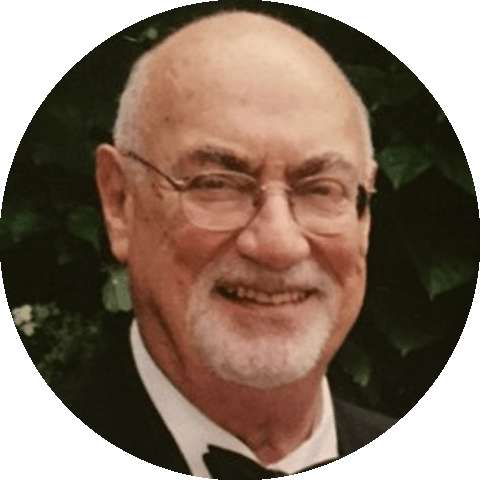
GERALD HILLMAN
DIRECTOR
Director of Hollinger International Inc. and co-founder of Trireme Management Group with Richard Perle.
Perle siphoned money $2.5 million out of Hollinger International into TMG and did not report the transaction to the audit commission.
Hillman was also a part of the Defense Advisory Board along with Henry Kissinger when Perle was the chair.
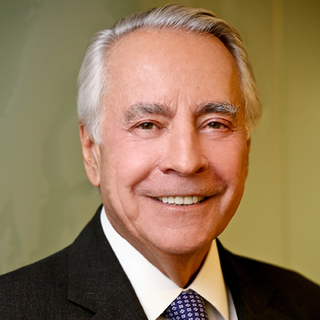
RICHARD BURT
DIRECTOR
Burt was an independent director and part of Hollinger International's audit committee along with James R. Thompson that did nothing to stop or question Black's pillaging of the company.
Following graduate school, he was selected for a research fellowship at the United States Naval War College. Following this fellowship, Burt moved to London to work as a research associate and later Assistant Director of the International Institute of Strategic Studies. In 1977, he was hired by The New York Times to work as a correspondent on national security issues.
Burt began working for the United States Department of State in the early 1980s. In 1981, he was appointed Director of Politico-Military Affairs, and in 1983 Assistant Secretary of State for European and Canadian Affairs. In 1985, he became the United States Ambassador to Germany. His tenure as Ambassador to Germany coincided with the beginning of the process that would lead to the reunification of Germany. In 1989, President George H.W. Bush appointed Burt as chief negotiator for the Strategic Arms Reduction Treaty (START I) between the United States and the Soviet Union, with the rank of ambassador. The treaty, signed in 1991, limited the number of nuclear weapons that the two countries could have. Richard Perle was also part of the
After negotiation of the START I treaty, Burt left government service and entered the private sector. He served as John McCain's top national security adviser during McCain's 2000 and 2008 Presidential campaigns. In 2000, he and others invested in the business intelligence and risk-assessment and management firm Diligence. In 2007, he left Diligence to join Kissinger McLarty Associates. He has also worked as a partner in consulting firms McKinsey and Company and now serves as a managing partner of McLarty Associates in Washington, D.C. In addition, he has served on boards for Deutsche Bank's Scudder and Germany mutual fund families, America Abroad Media, International Games Technology, UBS mutual funds, and Textron Corporation. Burt is also a Senior Advisor to the Center for Strategic and International Studies and U.S. Chair of Global Zero. He has lobbied on behalf of LOT Polish Airlines, the Capital Bank of Jordan, and Ukrainian construction firm TMM.
In 2014 through early 2016, Burt served as an unpaid foreign policy advisor for Rand Paul's campaign for president.
During the first two quarters of 2016, McLarty Associates received $365,000 to lobby for New European Pipeline AG, a firm owned by Russian oil company Gazprom. Beginning in February 2016, he and a colleague represented the five European energy companies investing in Nord Stream II, an expansion of the Nord Stream pipeline which would allow Russian gas to reach Europe without going through Belarus or Ukraine. He contributed to Trump's first major foreign policy speech, April 27, 2016, at the Mayflower Hotel. In the speech, Trump called for greater cooperation with Russia.:F[FF In an April 2019 interview of the Center for the National Interest's Dmitry Simes by Christiane Amanpour, Burt was the top national security adviser to the 2016 Trump campaign. Burt is a board member of the Center for the National Interest as well as a board director of the US-Russia Business Council.
Burt is on the Alfa Capital Partners Advisory Board in which Russia's Alfa-Bank is an investor.
Information on CNI is available here
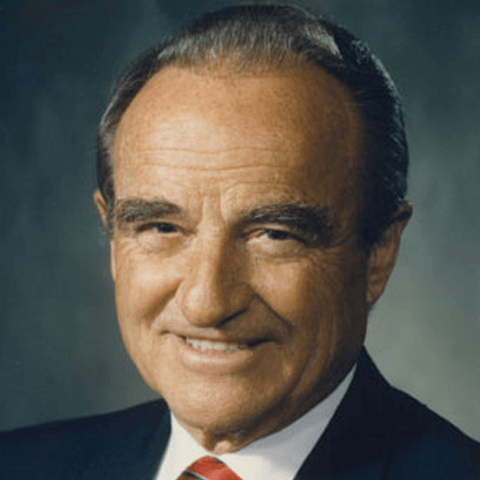
DWAYNE O. ANDREAS
DIRECTOR
Chairman Emeritus of Archer Daniels Midland Company
From PBS 1998: (Note: Also see Center for Responsive Politics Donor Profile 1990-2002.)
"Perhaps America's champion all-time campaign contributor is Dwayne Orville Andreas. Although virtually unknown to most Americans, since the 1970s, leading politicians of both parties have been well acquainted with Andreas, his company, and his money. The 77-year-old Andreas rose from modest circumstances to become chairman of the Archer Daniels Midland Company, which is based in Decatur, Illinois, and is the largest U.S. processor of farm commodities such as wheat, corn and soybeans.
"Born to a Mennonite farm family outside Worthington, Minnesota, Andreas grew up mostly in Iowa and attended Wheaton College in Illinois. But after getting married in his sophomore year, the diminutive (height: 5-foot-4) Andreas dropped out and joined a small, family-owned food-processing firm in Cedar Rapids, Iowa.
"The family eventually sold out its business, and Andreas wound up at A.D.M., becoming its chief executive in 1971. He has converted a company once known primarily as a soybean mill into a diversified multinational powerhouse with more than $12 billion in annual sales. Former U.S. Ambassador Robert S. Strauss, who is a close friend of Andreas and an A.D.M board member, told FRONTLINE: 'He's a very able businessman, probably the ablest one I've ever known.'
"While Andreas has been building A.D.M. into the self-proclaimed 'Supermarket to the World,' -- a phrase known to millions of Americans who watch A.D.M.-sponsored news and public affairs on both PBS and the commercial networks -- he has shown an extraordinary knack for cultivating powerful politicans. Among his past close friends and golfing partners: Republican presidential nominee Thomas Dewey and House Speaker Thomas (Tip) O'Neill, a Democrat. He was particularly close to Vice-President Hubert Humphrey, who was godfather to Andreas's son, Michael. Andreas has often been photographed with world leaders, including Mikhail Gorbachev. A statue of Ronald Reagan occupies a place of honor at A.D.M.'s headquarters.
"As far back as Watergate, Andreas' political giving has thrust him into controversy. A Watergate-era investigation led to criminal charges that he had illegally contributed $100,000 to Humphrey's 1968 campaign for President, but Andreas was acquitted. And his $25,000 cash donation to President Richard M. Nixon's re-election bid in 1972 became a focus of Watergate inquiry into abuses surrounding unreported campaign money. According to an investigative memo uncovered in 1992 that quotes President Nixon's personal secretary Rosemary Woods, Andreas delivered $100,000 in $100 bills to the White House shortly before the 1972 election. Woods stored the money in a basement safe for about a year, when the President had her return the cash to Andreas.
"Andreas, who earns a $3.6 million salary, has continued donating generously to many Democratic and Republican candidates -- 'tithing', he calls it. Over the years he has given money to Senator Bob Dole, President William Jefferson Clinton, President George Herbert Walker Bush, President James Earl Carter, Jr., Michael Dukakis, Jack F. Kemp, and Jesse Jackson, among others. Between 1981 and 1994, Senator Dole and his political foundations collected $178,000 in contributions from Andreas, members of Andreas' family and A.D.M. executives, according to Common Cause, a nonpartisan watchdog group in Washington. Andreas and A.D.M. have also given more than $2 million in 'soft money to the Democratic and Republican parties since 1991, according to federal records.
"Meanwhile, Dole has become known to some as Senator Ethanol because of his longtime, staunch support of federal tax subsidies for corn-based ethanol, a gasoline additive. A.D.M., which produces sixty percent of all U.S. ethanol, has been a major beneficiary. Congressional fans of ethanol, many of them, like Dole, representatives of corn states, say it has helped ease US dependence on foreign oil. Others are not convinced. Recently New Jersey Senator Bill Bradley told The Boston Globe, 'This billion-dollar tax break is nothing more than a gift to a single, politically connected industry.' Andreas' critics link federal subsidies -- including sugar price supports and the ethanol tax break -- to the influence that they say his political dollars have bought him among elected officials. The sugar subsidy has the effect of raising the price of a corn syrup sweetner, another important A.D.M. product. In his stock reply to such charges, Andreas says, 'We do not talk to any government official about our business.'
"Currently, however, the company has bigger problems than its reputation for political giving. Federal prosecutors are investigating allegations that the company has conspired to fix commodity prices. A.D.M. has denied any wrongdoing."
ADM Foundation
"ADM Foundation is a company-sponsored foundation headquartered in Decatur, Illinois. It focuses on aiding the poor and homeless and funding educational projects and projects in areas germane to the business of the Archer Daniels Midland Co. (ADM), one of the largest agribusiness processing companies in the world. Dwayne O. Andreas, chairman emeritus of ADM Company, is a member of the Horatio Alger Association (HAA). Check out the informative review of the HAA site in this month's People Section. We Internet Prospector (March 2002) learn from Andreas' bio on the HAA site that after years of focusing on his role as head of ADM, he has become involved in various monstrous projects to feed the world's hungry."
Affiliations
Corporate Member (ADM), Business Council for the United Nations
Board of Overseers (1997), Hoover Institution
Director, Center for the National Interest (Nixon Center)
Former Director, Center for Strategic and International Studies
Former Director, National Board, Boys' and Girls' Club of America
Former Chairman, Foundation for the Commemoration of the United States Constitution
Member, Horatio Alger Association of Distinguished Americans (HAA)
Member, Americans For Humanitarian Trade with Cuba
Member, Bilderberg Group
Former Member, National Forest Foundation
Award 1989, Albert Schweitzer Medal for Humanitariansm
Co-founder, Carter Center
International Board of Governors, Peres Center for Peace
Americans for Humanitarian Trade with Cuba
US-USSR Trade and Economic Council
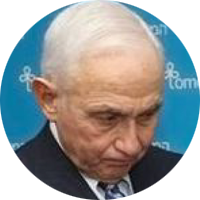
LESLIE WEXNER
DIRECTOR
Wexner was a director at Hollinger International Inc. Due to his devout interest in Israel, influence and contacts that Wexner was involved in overseeing the Jerusalem Post along with Lord Weidenfeld.
Secretive Billionaire Jewish Supremacist.
Chairman and CEO of L Brands. His companies Victoria Secrets, A&F used MC2 models.
Connected to cotton plantations and sweatshops
Allegedly operates a huge international drug running operation previous run by Max Fisher.
His name and addresses are listed and highlighted as a person of interest in Epstein’s little black book.
Gave his protege Jeffrey Epstein a luxury Manhattan mansion equipped with secret rooms and bullet proof features as well as hidden cameras.
Implicated by Maria Farmer a victim of an alleged rape incident involving Jeffrey Epstein and Ghislaine Maxwell at one of Wexner's properties in Ohio. Farmer holds Wexner responsible because he deeded the home where the assault took place to Epstein, his closest financial adviser, and it was Wexner's guards who prevented her from leaving after the assault. Farmer says she had to get permission from Abigail (Wexner's wife) to leave the property.
Epstein bragged to Farmer "Les loves me. He'll let me do anything,"
He invited Epstein and Dershowitz to his 60th birthday party along with former Israeli PM Shimon Peres.
Runs Wexner Foundation that finance pro-Jewish and Israeli ‘causes’.
Financed the JFK School at Harvard University, Connected to major figures at Harvard University.
Connected to serious organised crime figures implicated in a mob-style hit on Arthur Shapiro, an attorney of Limited (now L Brands)
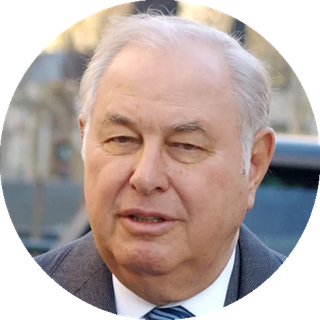
A. ALFRED TAUBMAN
DIRECTOR
A. Alfred Taubman was a director at Hollinger International Inc, he was also the former CEO of Sotheby’s. He remained on Hollinger’s board even after he had been convicted of violating antitrust laws
Taubman made his fortune as CEO of Taubman Centers, a company he founded in the 1950's. The company built major mall complexes across the United States. These malls became a major part of the consumer culture of the United States.
Taubman was a close friend and business associate of Max M. Fisher and Henry Ford II. In 1977, he joined with Max Fisher and Henry Ford II to buy the 73,000-acre (300 km2) Irvine Ranch south of Los Angeles for $337 million; Fisher's group would sell the property six years later for $1 billion.
Under the guise of philanthropy these businessmen use/d their money to bolster and protect the status quo perpetuated by the establishment by shaping the minds of young men and women who desire careers in government in the top educational institutions.
Anti-trust conviction
In the early 2000s, an investigation into alleged price-fixing between Sotheby's and rival auction house Christie's led to a confession by Sotheby's CEO Diana Brooks of an elaborate price fixing scheme with her counterpart at Christie's, Christopher Davidge. In a plea bargain arrangement, prosecutors offered to keep her out of prison if she agreed to implicate Taubman. She did, and thereafter Taubman was convicted in a jury trial of price fixing. He was fined $7.5 million (USD) and imprisoned for ten months in 2002 for antitrust violations. Taubman was released in 2003, and continued to insist on his innocence despite being a major benefactor in the scheme.
Trump
Taubman and US President Donald Trump were long time friends. They attended the Mike Tyson vs Carl Williams boxing event together. Donald Trump also attended Taubman's book launch along woth Henry Kissinger.
Epstein - Taubman's name appears in Jeffrey Epstein's black book (Taubman’s son Bobby is also in Epstein’s black book).
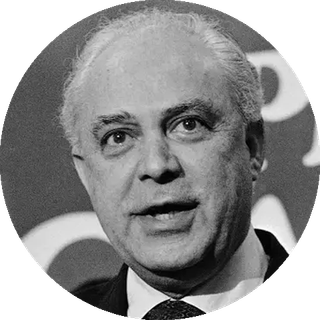
ROBERT S. STRAUS
DIRECTOR
Robert Schwarz Strauss (October 19, 1918 – March 19, 2014) was a figure in American politics and diplomacy whose service dated back to future president Lyndon Johnson’s first congressional campaign in 1937.
Strauss was hired as a special agent by the Federal Bureau of Investigation (FBI), and served in the FBI throughout World War II.
After the war, he settled in Dallas, where he and a fellow FBI agent, Richard A. Gump, founded their own law firm.
By the 1950s, he was associated in Texas politics with the faction of the Democratic Party led by Johnson and John Connally. He served as the Chairman of the Democratic National Committee between 1972 and 1977 and served under President Jimmy Carter as the U.S. Trade Representative and in 1979 became the special envoy to the Middle East. negotiating Middle East peace, invigorated by the Camp David agreements between Israel and Egypt.
The Camp David agreements are presented as a great diplomatic triumph of the United States. In reality they were a diplomatic catastrophe. At Camp David the US and Israel finally accepted the 1971 offer presented by Egypt. The offer was rejected at the time it was made. In order to get Israel to agree to the deal the US promised a massive increase in military aid which totaled around 50% of aid spending worldwide. Israel used their newly required aid to attack their enemies in 1978 and again in 1972.
Strauss was selected by President George H. W. Bush to be the U.S. ambassador to the Soviet Union in 1991 and after the USSR's collapse, he served as the U.S. ambassador to Russia from 1991 until 1992. Strauss had advised and represented U.S. presidents over three administrations and for both major U.S. political parties.
Late in life, Strauss was tarnished by his association with Conrad Black’s Hollinger company, when he was one of a group of independent directors who were involved in the settlement of a $50m negligence claim by a creditor.
Strauss served as Chairman of the U.S.-Russia Business Council (Henry Kissinger and Richard Burt are deeply involved with USRBC), and was a member of the globalist think tanks Council on Foreign Relations and a trustee of the Center for Strategic and International Studies.
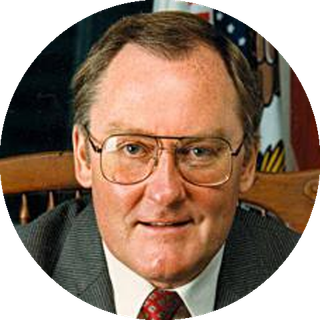
JAMES R. THOMPSON
DIRECTOR
Thompson was a director and head of the Audit Committee for Hollinger International that approved the criminal actions of the board every step of the way.
After leaving public service, Thompson joined Winston & Strawn LLP, a major Chicago-based law firm. Thompson served as chairman of the executive committee from 1991 to 2006, as well as chairman and CEO of the firm from 1993 to 2006. He was senior chairman until January 31, 2015.
As CEO of Winston & Strawn, he focused in the area of government relations and regulatory affairs. The firm has lobbied for American Airlines, and he has previously represented United Airlines.
Winston & Strawn is the same firm that represented former Illinois governor George Ryan pro bono against federal charges relating to the "Licenses-for-Bribes" scandal during Ryan's tenure as Illinois Governor and Secretary of State. Thompson acted as Ryan's lawyer personally.
On April 17, 2006, Ryan was convicted on all 18 counts, which included racketeering, misusing state resources for political gain, and fraud. He was sentenced to 6½ years in federal prison and began serving his sentence on November 7, 2007. Ryan was released from federal prison on July 3, 2013.
9/11 Commission
Many years after leaving public office, he served as a member of the National Commission on Terrorist Attacks Upon the United States (the 9/11 Commission)
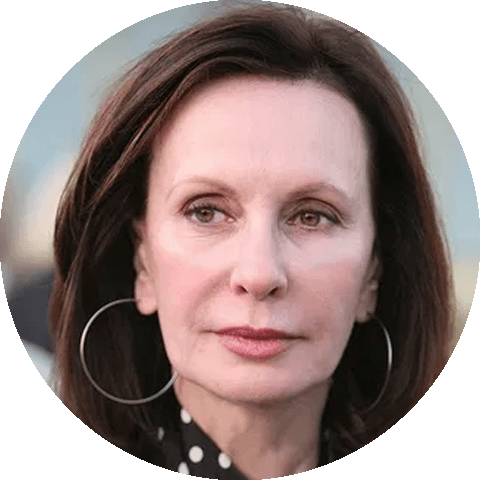
MARIE-JOSEE KRAVIS
DIRECTOR
Marie-Josée Kravis (Drouin) was born in Ottawa, Ontario, Canada, of French and English parentage. She earned an MA in economics from the University of Ottawa.
Kravis, is a conservative economist and the wife of financier Henry Kravis. Kravis was a board member at Hollinger International Inc.
She serves on the international advisory board of the Federal Reserve Bank of New York and on the boards of Publicis S.A. and LVMH. Since 1989 she has attended all conferences of the Bilderberg Group except the one in 1997 and serves on its steering committee along with the likes of Kissinger and Black.
From 1971 to 1984 she was a consultant to the Hudson Institute of New York and executive director of the Hudson Institute of Canada. She has served on the boards of CIBC, the Ford Motor Company, the Standard Life Insurance Co., Hasbro Inc., Vivendi Universal and IAC/InterActiveCorp.
Additionally, she previously served as vice-chair of Canada's Royal Commission on National Passenger Transportation and co-chaired a national commission on prosperity and competitiveness. She served on the binational dispute settlement panel established under the NAFTA agreement.
She has been a regular columnist for La Presse, the Montreal Gazette and the Financial Post of Canada, and she has contributed to the Wall Street Journal and numerous other publications. She hosted a weekly television show on the public television network TV Ontario. She is also the author with B. Bruce-Briggs of Canada Has a Future and with Maurice Ernst and Jimmy Wheeler of Western Europe: Adjusting to Structural Change.
She is a senior fellow at the Hudson Institute and a member of the Council on Foreign Relations.
Kravis and her husband appear in Jeffrey Epstein's black book.
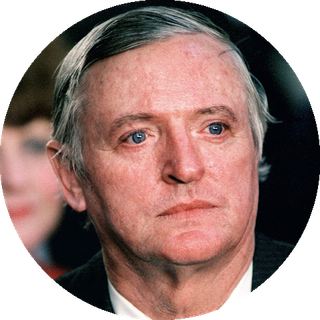
WILLIAM F. BUCKLEY JR
ADVISOR
Buckley was an American public intellectual and conservative author and commentator. In 1955 Buckley founded National Review, a magazine that stimulated the conservative movement in the late-20th century United States. Buckley hosted 1,429 episodes of the public affairs television show Firing Line (1966–1999), the longest-running public affairs show in American television history with a single host.
Buckley called himself either a libertarian or a conservative. George H. Nash, a historian of the modern American conservative movement, said in 2008 that Buckley was "arguably the most important public intellectual in the United States in the past half century. For an entire generation, he was the preeminent voice of American conservatism and its first great ecumenical figure." Buckley's primary contribution to politics was a fusion of traditionalist conservatism and classical liberalism; it laid the groundwork for the rightward shift in the Republican Party exemplified by Barry Goldwater and Ronald Reagan.
At the end of World War II in 1945, Buckley enrolled at Yale University, where he became a member of the secret Skull and Bones society and was a masterful debater. He was an active member of the Conservative Party of the Yale Political Union, and served as Chairman of the Yale Daily News and as an informer for the FBI. Buckley studied political science, history, and economics at Yale, graduating with honors in 1950.] He excelled on the Yale Debate Team; under the tutelage of Yale professor Rollin G. Osterweis, Buckley honed his acerbic style.
In 1951, along with many other Ivy League alumni, Buckley was recruited into the Central Intelligence Agency (CIA); he served for two years, including one year in Mexico City working on political action for E. Howard Hunt, who was later jailed for his part in the Watergate affair. The two officers remained lifelong friends. In a November 1, 2005, column for National Review, Buckley recounted that while he worked for the CIA, the only CIA employee he knew was Hunt.
Buckley was raised a Catholic and was a member of the Knights of Malta.

GEORGE WILL
ADVISOR
George Frederick Will (born May 4, 1941) is an American libertarian-conservative political commentator. He writes regular columns for The Washington Post and provides commentary for NBC News and MSNBC. In 1986, The Wall Street Journal called him "perhaps the most powerful journalist in America," in a league with Walter Lippmann. He earlier wrote for National Review from 1972 to 1978.
Will was a supporter of Ronald Reagan, he even helped Reagan prepare for his Presidential Debate with Jimmy Carter.
"My business is my business. Got it?" - George Will New York Times
More recently Will wrote a glowing column about top GOP donor and huge donor to pro-Israel advocacy and initiatives.
